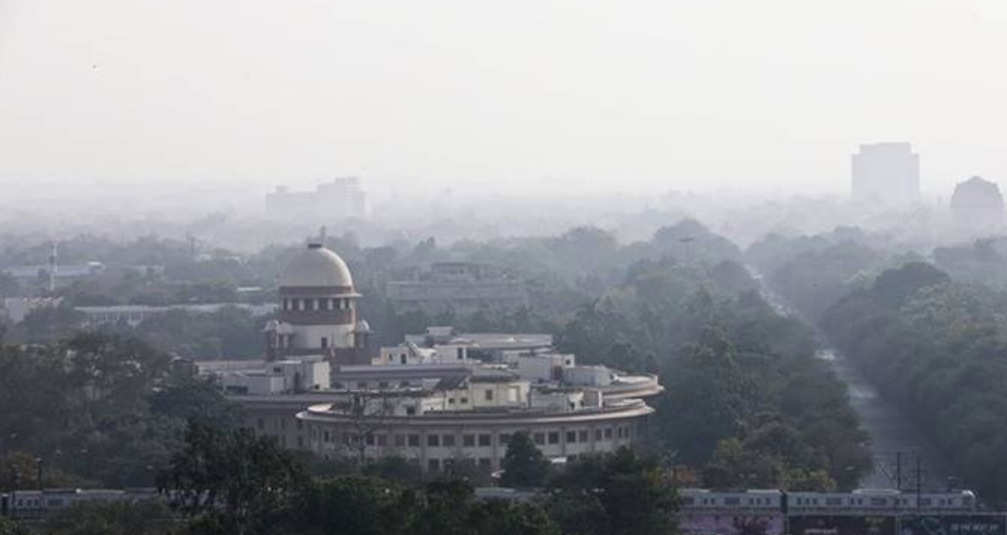I don’t know about you folks, but I found the obiter dicta by a two-judge bench of the Supreme Court last week very disturbing. Hearing a petition by a farmers’ organisation (not connected to the protests) for permission to congregate at Jantar Mantar in Delhi, the bench asked the question: Do the farmers have the right to protest against the three farm laws when the judicial challenge to them is under the court’s consideration and the matter is sub-judice? Further, the hon’ble judges perhaps gave a glimpse of their inner thinking when they also observed that the farmers have ” strangled” Delhi for months and now have the temerity to want to come to Jantar Mantar. They have now proposed to deliberate on these issues.
Where was the need for these comments when the matter is already settled, by the same court, none other, by a number of judgments? The latest was in December 2020 when CJI Bobde, in a decision of considerable import, pleasantly surprised us all by ruling that protest is a fundamental right, that public protests are permissible and legal provided they don’t involve violence or disturb the public order, that the court would not, therefore, intervene in the matter. No circumstance has changed since then to warrant second thoughts, except that the government itself has been trying its best to instigate and wreak violence, first at Karnal and now at Lakhimpur Kheri.

Over the last couple of months, some hope had been aroused that the Supreme Court had finally resolved to confront a rampaging executive, to stand up more assertively to protect the constitutional rights of the citizens, to become more pro-active. There were heartening straws in the wind, bold pronouncements, firm orders. Some of us even dared to hope that a kind of judicial Arab spring was in the air. But the questions now asked by the court on the very rationale of the farmers’ protests appear to indicate a shift in the wind, that perhaps our hopes were too premature.
For a lay person to understand the issues involved, a lawyer friend of mine has donned the mantle of a Devil’s Advocate and sought to justify the Court’s latest queries by posing four questions to me. These are questions which must also be plaguing the mind of the average citizen ( not lawyers, they have all the answers!) and therefore it would be useful to consider them. I reproduce them below, along with my response to them:
[1] If farmers have moved the Supreme Court, what is the point of continuing with the protests? The matter is sub-judice, how then can the protests continue?
The answer to this is pretty simple, but since there is no politically correct way to say it, here goes: the protests are continuing because the farmers ( like large swathes of the citizenry) have lost faith in the Supreme Court. The credibility of the court has never been lower than it has been over the last few Chief Justices. This is primarily because of the perception that it is reluctant to confront the government, that all major decisions have of late gone in favour of the govt., and where that is not possible the matters are simply kept in limbo.
Secondly, to the best of my knowledge, the protesting groups of farmers under the umbrella of the Samyukta Kisan Morcha, have not gone to the Supreme Court. Six petitions challenging the three farm laws have been filed by the Bharatiya Kisan Union, one DMK Member of parliament, one RJD MP, the Chhatisgarkh Kisan Congress, and a couple of others, but not by the SKM. The SKM has always maintained that the farm laws have not just legal implications but also economic, social and political dimensions and therefore the opposition to them cannot be limited to the court rooms. One doesn’t play poker with a rigged pack of cards.
Thirdly, in a democracy, the courts are only one of the options available to citizens to challenge the government. A legal or constitutional challenge to an unpopular law is only the first step, and a threshold one at that. Even if a law is legally sound, it still has to pass the test of acceptability by the people- legality and legitimacy are two separate concepts and requirements. The Supreme Court can decide on the first one, not the second – that is a political and social issue, between the government and the people, and it would be unwise and unconstitutional for any court to interfere in the process by banning protests. Popular legitimacy is as important as constitutional validity for any law.
[II] Farmers have a choice to either approach the court or to hit the road. They cannot do both.
This in fact is the essence of the question posed by the two-judge bench referred to earlier. But they are wrong, as Justice Madan Lokur ( Retired) has reiterated in a recent interview to THE WIRE: the pendency of a petition in court does not negate the option to protest. The court itself has held, in numerous judgments, that the right to protest is a fundamental right in a democracy. It synthesizes within itself key guarantees provided in our Constitution: Article 19(1)(a)- freedom of speech and expression, Article 19(1)(b)- right to assemble peacefully, Article 21- right to protection of life and liberty. These rights run pari passu with Article 32- the right to constitutional remedy, and the two are not mutually exclusive, they co-exist, they can be invoked separately or together, in sequence or simultaneously.
In my view, the doctrine which the bench appears to be postulating is dangerous for democracy, as an editorial in the TRIBUNE on 7th October has pointed out. In a democracy, the streets are as important as the courts as arenas for opposing a government, more especially so when Parliament has been emasculated, as in the India of today. Any attempt to put a gag order on street protests by using the doctrine of ” sub-judice” would be anti-democratic and unconstitutional. All it would take to ” strangulate” (the court’s favourite word) any opposition to government policies would be one fixed/ contrived petition in the court for or against the policy. And this is not speculation: it is already happening with this govt., including on the farm laws. The Supreme Court should not make the mistake of believing that it is the only guardian of democracy- the people on the streets make better sentinels, and anything which ties their hands or gags them is to be condemned by all right-thinking people.
[III] The farming laws have been stayed by the SC, so why continue with the protests?
Because this govt. cannot be trusted, either to keep its word or to respect even judicial orders. Remember the Rafale case where it lied to the court about the CAG having presented its audit report to Parliament? Or the Aadhaar judgment prohibiting the linking of Aadhaar to non-welfare schemes, which is being violated on a daily basis with impunity? Or the more recent Pegasus issue, where the govt. refused to file an affidavit even when asked by the court to do so? Moreover, a stay or injunction is an interim and temporary order and can be lifted at any time, it does not provide a permanent solution.
Secondly, suppose the SC finally decides that the laws are legal and constitutional; the stay would then be automatically vacated and the laws would become effective. The farmers would then be left in the lurch, having observed the stay and foregone their right to protest. It would be well nigh impossible to rekindle the momentum the protests have acquired. And finally, public protests are a means of spreading the message throughout the country, in the absence of the kind of financial resources and lapdog media which the govt. has at its command to broadcast ITS propaganda and misinformation. Suspending the protests would adversely effect the farmers’ ability to muster support for a legitimate cause and movement; it would also enable the govt. to quietly implement the three laws in an insidious manner, as it has been doing with Aadhaar and even with CAA. The status quo would favour only the govt. at the cost of the farmers.
[ IV] The Supreme Court can fast track hearings so why not wait for the decision?
Once again, it’s the lack of credibility of the court, based on its recent track record. The constitutional challenges to the farm laws have been pending for almost a year now, with no end in sight. Even the report of the Expert Committee set up by the court has been submitted to it a few months back but has not been made public for some inexplicable reason, let alone taken up for consideration. This appears to have become a pattern now whenever some contentious matter concerning the executive is involved. Other important cases have also been pending with the court for years- Electoral Bonds, abrogation of Article 370, The Kashmir Reorganisation Act, CAA and NRC, UAPA- and even applications for urgent hearing have not speeded up their disposal. Once again, the status quo suits the government. One cannot blame the farmers for their lack of faith in the judiciary’s ability or will to decide on the farm laws quickly, and therefore to continue with their protests.
In an earlier blog (https://avayshukla.blogspot.com/2021/01/the-farmers-protest-does-not-require.html ) I had argued that the Supreme Court should concern itself with only the legal challenges to the three farm laws, and should keep away from the subject of the protests themselves. The latter are not within its domain, nor does it have the expertise or training to adjudicate on them. The protests are a politico-socio-economic movement to be resolved either in Parliament or in the country’s public spaces, not in court-rooms. I stand by this position with even greater conviction today. It is not the job of the judiciary to pull the executive’s chestnuts out of the fire. Any attempt to restrict or ban the protests by farmers can only weaken our ” partial democracy” further, and create an even wider trust deficit between the people and the judiciary.
One swallow does not make a summer, but it can at least be a harbinger of the spring we are all waiting for.
| The author retired from the IAS in December 2010. A keen environmentalist and trekker he has published a book on high altitude trekking in the Himachal Himalayas: THE TRAILS LESS TRAVELLED.
His second book- SPECTRE OF CHOOR DHAR is a collection of short stories based in Himachal and was published in July 2019. His third book was released in August 2020: POLYTICKS, DEMOCKRAZY AND MUMBO JUMBO is a compilation of satirical and humorous articles on the state of our nation. His fourth book was published on 6th July 2021. Titled INDIA: THE WASTED YEARS , the book is a chronicle of missed opportunities in the last nine years. Shukla’s fifth book – THE DEPUTY COMMISSIONER’S DOG AND OTHER COLLEAGUES- was released on 12th September 2023. It portrays the lighter side of life in the IAS and in Himachal. He writes for various publications and websites on the environment, governance and social issues. He divides his time between Delhi and his cottage in a small village above Shimla. He blogs at http://avayshukla.blogspot.in/ |


